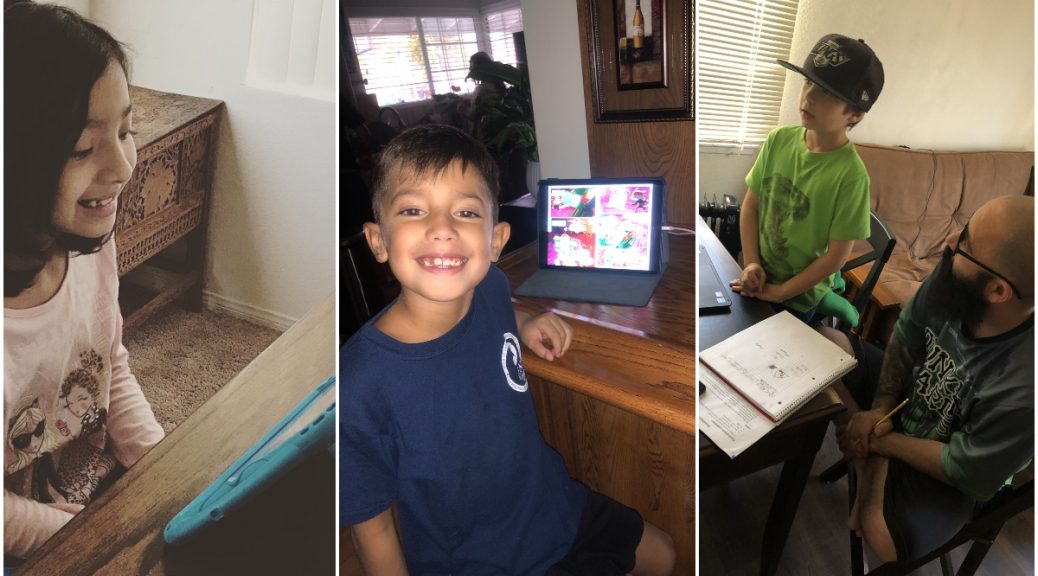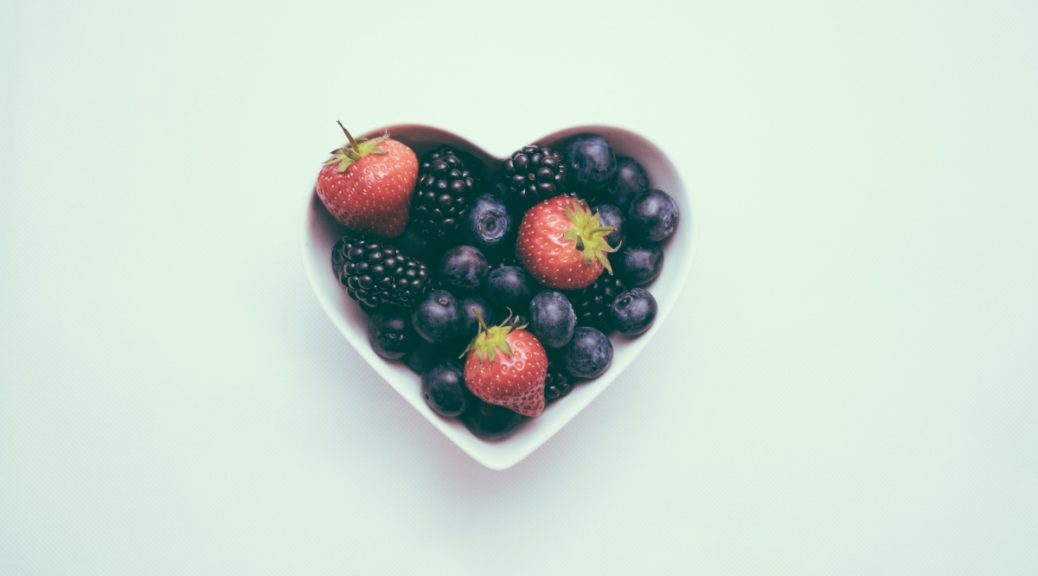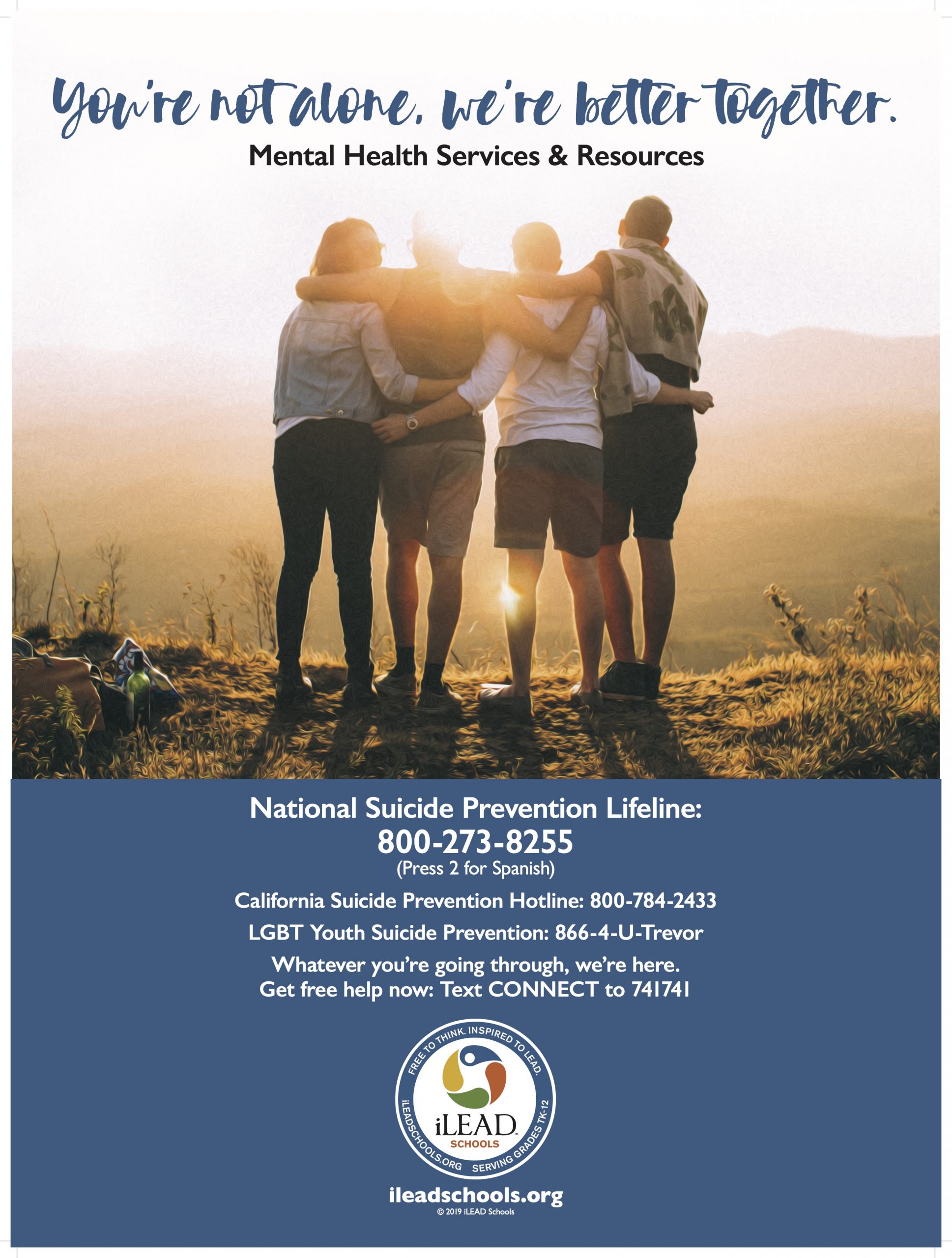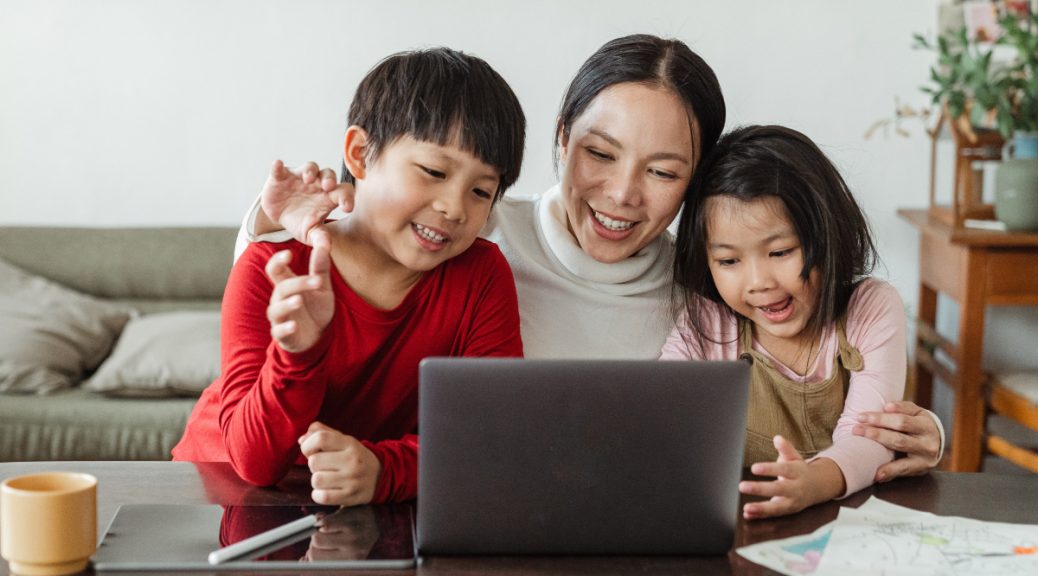View on Times Standard
Tag Archives: ilead antelope valley
iLEAD Antelope Valley Culture: Components of Social-Emotional Learning — Grit
What does it take to really succeed? Some might call it drive or determination. At iLEAD Antelope Valley, we like to call it grit, and it is a crucial component of social-emotional learning.
We define grit as “having courage and resolve, and strength of character.” Someone with grit works hard and passionately, sets goals, and follows through. Why is grit important? Because to truly accomplish goals and thrive, we need the ability to persevere. Without grit, talent may be nothing more than unmet potential. That is why we believe it is so valuable to instill an understanding of grit early on in kids.
But how does one assess “grittiness”? A simple way is to see if you identify with some of these statements:
- I enjoy projects that take time to complete.
- I am working toward a long-term goal.
- What I do each day is connected to my deepest personal values.
- There is at least one subject or activity I never get bored thinking about.
- Setbacks don’t discourage me for long.
- I am a hard worker.
- I finish whatever I begin.
- I never stop working to improve.
Our approach to SEL has been deeply influenced by Angela Lee Duckworth, who has done extensive research in the area of grit. She suggests that one way to think about grit is to consider what it isn’t.
Grit isn’t talent. Grit isn’t luck. Grit isn’t how intensely, for the moment, you want something.
Instead, grit is about having a goal you care about so much that it organizes and gives meaning to almost everything you do. Further, grit means holding fast to that goal, no matter what.
There are many practical ways to foster grit in learners:
- Help them see how their efforts can contribute to the well-being of others.
- Nurture a growth mindset; a belief that the ability to learn is not fixed.
- Ask them to set their own long-term goals.
- Focus discussions on effort, tenacity, and learning from failures.
We believe as part of a curriculum that’s rich in project-based and social-emotional learning, when kids learn to model grit in their academic pursuits, their mindset will positively affect every area of their lives.
Watch This: The Power of Passion and Perseverance
Please Take Our Extended Hours Survey Today!
Hello, iLEAD AV families! During this challenging school year, our team has worked diligently to provide engaging lessons and extra online activities to support our learners. We recognize that our learners may benefit from more hours on site. For the upcoming 2021-2022 school year, we have an opportunity to use allocated funds to provide extended hours per cohort day to support our learners and you. For the two days they are on campus per week, we can extend the day an extra two hours at no cost to you — changing the hours from 9:00 AM-3:30 PM to 9:00 AM-5:30 PM. If there is enough interest and we move forward with this opportunity, this will allow families to pick up their learners at a later time and will give learners the enrichment and academic growth activities they may need. This would not change cohort schedules; it simply would allow the learners an extra two hours per day.
Please fill out this anonymous survey to help us assess whether our families are interested and this would be the most beneficial way to use these allocated funds.
We thank you for your valuable input.
Free Breakfast & Lunch Pick-Up: Summer Schedule
Through the Summer Seamless Program, we will continue providing meals for all children up to 18 years of age at no charge during our summer break. You do not need to be an enrolled learner in order to receive free meals. Each child will receive one grab-and-go breakfast and lunch Monday through Thursday from June 19-28 and July 6-August 11. Each Thursday we will also serve free meals to take home for Thursday, Friday, and Saturday. Children need not be present to pick up.
Meals will be grab-and-go with minimal contact. Breakfast and lunch will be served together at the front gate (2110 W. Avenue K, Lancaster, CA) Monday through Thursday from 9:00-11:00 AM. For your protection and ours, please wear a cloth face covering when picking up meals.
Additional Tools
On the dates that we are not serving, you can find meals nearby using the resources at the links below:
USDA Summer Meal Finder Tool
CDE Summer Meal Finder
CA Meals for Kids Mobile Application
Mental Health Support
Did you know that if you text “HOME” to 741741 when you are feeling depressed, suicidal, or just needing someone to talk to, a crisis counselor will text you? Many people do not like talking on the phone and prefer texting. It is a free service. It is okay not to be okay. Don’t hesitate to reach out.
In order to initiate access to available learner mental health services, you may contact the following mental health provider: Masada Homes at 661-726-5500.
Please Take Our Extended Hours Survey Today!
Hello, iLEAD AV families! During this challenging school year, our team has worked diligently to provide engaging lessons and extra online activities to support our learners. We recognize that our learners may benefit from more hours on site. For the upcoming 2021-2022 school year, we have an opportunity to use allocated funds to provide extended hours per cohort day to support our learners and you. For the two days they are on campus per week, we can extend the day an extra two hours at no cost to you — changing the hours from 9:00 AM-3:30 PM to 9:00 AM-5:30 PM. If there is enough interest and we move forward with this opportunity, this will allow families to pick up their learners at a later time and will give learners the enrichment and academic growth activities they may need. This would not change cohort schedules; it simply would allow the learners an extra two hours per day.
Please fill out this anonymous survey to help us assess whether our families are interested and this would be the most beneficial way to use these allocated funds.
We thank you for your valuable input.
Free Breakfast & Lunch Pick-Up: Summer Schedule
Through the Summer Seamless Program, we will continue providing meals for all children up to 18 years of age at no charge during our summer break. You do not need to be an enrolled learner in order to receive free meals. Each child will receive one grab-and-go breakfast and lunch Monday through Thursday from June 19-28 and July 6-August 11. Each Thursday we will also serve free meals to take home for Thursday, Friday, and Saturday. Children need not be present to pick up.
Meals will be grab-and-go with minimal contact. Breakfast and lunch will be served together at the front gate (2110 W. Avenue K, Lancaster, CA) Monday through Thursday from 9:00-11:00 AM. For your protection and ours, please wear a cloth face covering when picking up meals.
Additional Tools
On the dates that we are not serving, you can find meals nearby using the resources at the links below:
USDA Summer Meal Finder Tool
CDE Summer Meal Finder
CA Meals for Kids Mobile Application
iLEAD Antelope Valley Culture: Components of Social-Emotional Learning — Zest
“Enthusiasm is the electricity of life.” —Gordon Parks
Central to the iLEAD Antelope Valley approach to project-based learning is a belief that education works best when it’s energetic. Rather than being stale and rote, it’s filled with excitement. That excitement, which we call zest, is a core element of social-emotional learning.
Individuals who approach life with zest tend to have the following characteristics:
- They refuse to do things halfway or halfheartedly.
- They are energetic.
- They approach life as an adventure.
In the context of classroom learning, zest coupled with curiosity can help drive kids’ motivation to learn and press on even when things get difficult. Zest is enthusiasm in the face of challenges. It can help learners overcome challenges to find amazing rewards.
So what does developing zest look like in the learning process? Facilitators can leverage kids’ innate ability to learn by creating and maintaining environments that encourage their zest and curiosity and support their feelings of autonomy. We believe in framing mistakes as opportunities for learning and discussion, and we celebrate questions to drive learning. We also believe in kids taking ownership of the direction their learning takes.
Incorporating zest into learning means funneling energy into dynamic, project-based learning that brings concepts to life. Whether it’s conducting scientific experiments, engaging in historical research and reenactments, or enjoying play-based learning, our learners engage in vibrant methods of exploring, creating, and understanding.
For a facilitator — and families, too — it’s important to bear in mind that some children are not as naturally “zestful” as others. With these learners especially, keep in mind that enthusiasm isn’t taught as much as it is modeled and encouraged. Enthusiasm is infectious. If kids see your zest for learning, they can be inspired too. The goal is to help kids move along the spectrum of enthusiasm toward a more zestful attitude.
When the seeds of enthusiasm are planted early and take root in the soil of learners’ minds, they are empowered to approach challenges as opportunities to grow and succeed.
Embrace the Near-Win
Free Kona Ice Days June 1-2!
To celebrate the end of the year, iSUPPORT will be hosting Kona Ice Days Tuesday, June 1, and Wednesday, June 2, to support all learners in both cohorts. Kona Ice will be here to serve some yummy Konas, free to all learners on campus!
iLEAD Antelope Valley Culture: Components of Social-Emotional Learning — Curiosity
“Make the most of yourself by fanning the tiny, inner sparks of possibility into flames of achievement.” — Golda Meir
Within the iLEAD Antelope Valley education model, we believe kids are more empowered to learn and retain knowledge when learning means asking questions. That’s why we reinforce curiosity as a component of social-emotional learning (SEL).
Simply put, curiosity is a strong desire to learn or know something — a search for information for its own sake.
Curiosity is frequently the engine that drives learning and achievement. Children are curious by nature, and so much of life is a source of wonder for them.
For curious learners, it’s less important to have the “right” answers and more important to create an environment where questioning and learning can occur.
So how do we nurture curiosity in learners? We do it, in part, by modeling an interest in the world around us and asking open-ended questions. Through dynamic project-based learning, facilitators at iLEAD Antelope Valley foster and develop kids’ natural inclination to be curious. Families and facilitators alike nurture curiosity when they encourage learners to identify and seek answers to questions that pique their interests.
A component of curiosity is uncertainty. While uncertainty often creates hesitation for learners, it’s possible for it to fuel the learning process. There are several ways to respond to uncertainty, according to Jamie Holmes, author of Nonsense: The Power of Not Knowing.
- Address the emotional impact of uncertainty: “The emotions of learning are surprise, awe, interest, and confusion,” according to Holmes. However, facilitators can help learners respond to these emotions by encouraging them to see uncertainty as an opportunity for learning.
- Adopt a nonauthoritarian facilitation style to encourage exploration, challenge and revision: By facilitating learning with a sense of curiosity and humanity, facilitators can help learners find ways to think and learn. Holmes writes, “The best teachers are in awe of their subjects.”
- Show how the process of discovery is often messy and nonlinear: Instead of simply presenting breakthroughs as logical results of long treks toward understanding, facilitators can share with learners how discoveries are often made — through trial and error, missteps, “happy accidents” and chance.
How do we pique learners’ curiosity? Developmental psychologist Dr. Marilyn Price-Mitchell has suggested several ways:
- Value and reward curiosity in learners.
- Give learners practice asking quality questions.
- Notice when kids feel puzzled or confused.
- Encourage learners to tinker with materials, thoughts, or emotions.
- Use current events as launchpads for conversation.
- Give learners opportunities to show healthy skepticism.
- Explore a variety of cultures and societies.
- Encourage curiosity outside of the classroom.
We believe when kids know how to be curious, they know how to think differently. When they know how to think differently, they’re empowered to be problem solvers who can change the world around them.
Still Curious?
“Curiosity. It’s the most powerful thing you own.”











